While Europe still lags North America by ten to one in dollars invested in artificial intelligence startups, the European AI startup ecosystem is gaining traction, with a number of countries emerging as leaders in the field.
US-based startups have received more than $2.2 billion in funding so far this year, compared to about $250 million for companies in Europe, according to new research by venture capital Earlybird. The AI funding boom began in late 2021 in the U.S., peaking at $3 billion per year.
The United States has a significant lead over Europe in the number of emerging AI firms, with 1,752 startups compared to 1,157 in the 33 European countries monitored by Earlybird. This means that the U.S. has about 53% more AI startups than Europe.
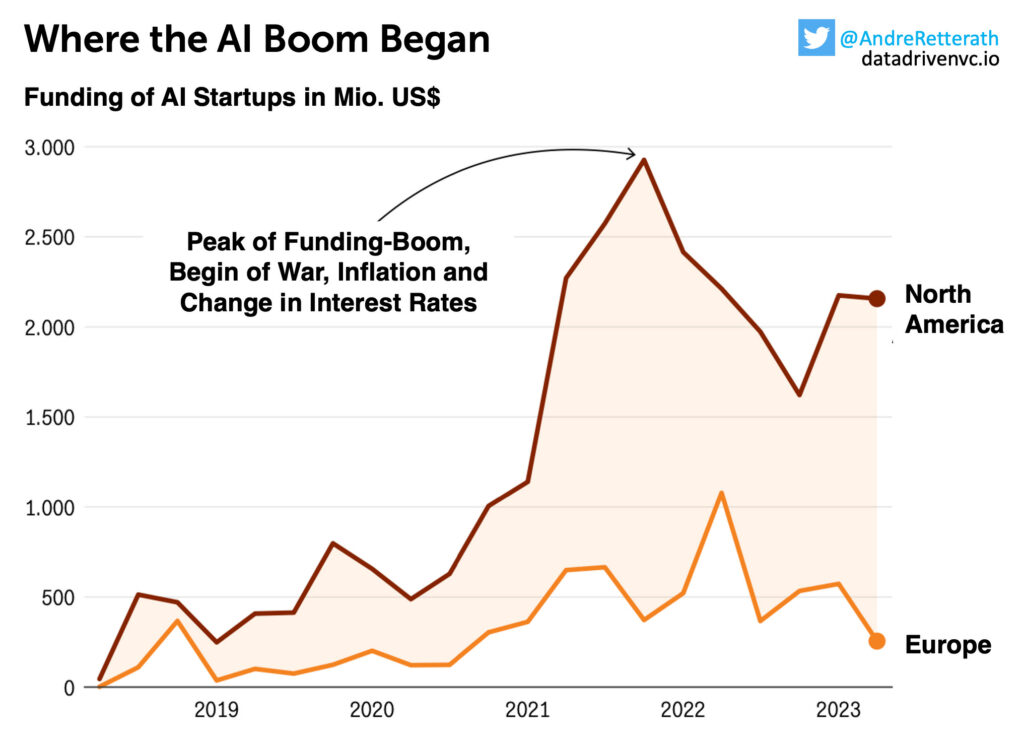
France boasts Europe’s best-funded startups
Topping the game in Europe, meanwhile, are the UK with 334 startups in the AI sector, while Germany and France are home to 167 and 135 AI startups, respectively, according to Earlybird’s data, as reported by Sifted.
The UK may have the most AI startups in Europe, but Estonia boasts the most AI startups per million people, with 10 such companies. Tiger Global-backed unicorn Veriff is one of the leading artificial intelligence firms in Estonia, a small country in northern Europe.
Switzerland has a thriving AI startup scene, too. Some 67 companies operate in the space, including the smart data capture unicorn Scandit. The alpine nation benefits from having one of Europe’s top tech universities, ETH Zurich, which has nine AI founders as alumni.
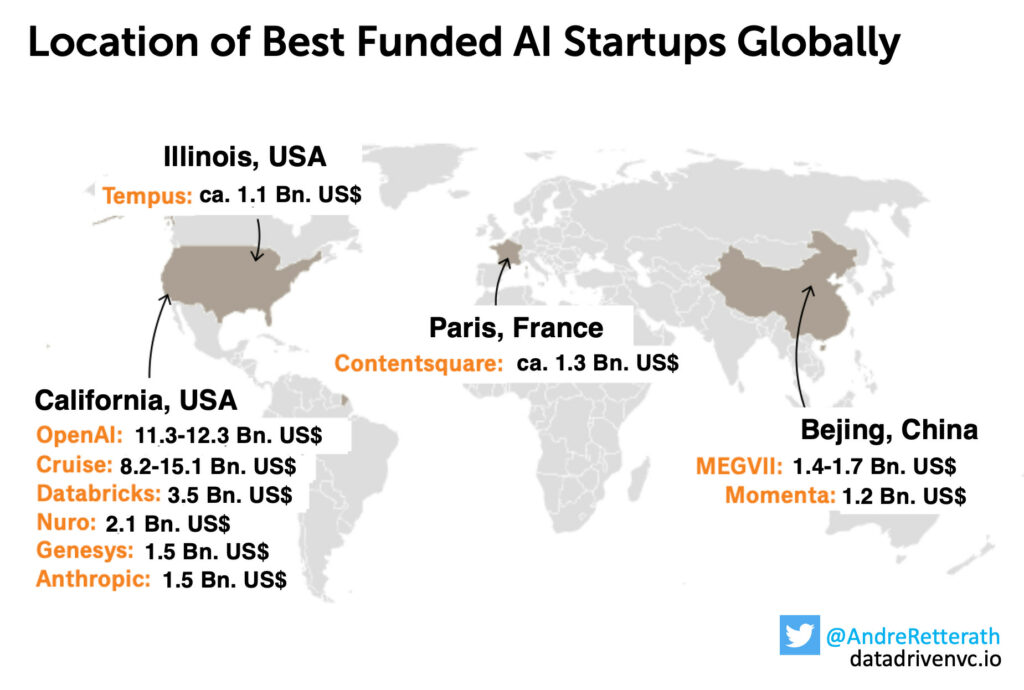
Funding-wise, however, France-based AI startups have received the lion’s share of all venture capital money coming into Europe. Dataiku, a Paris-based enterprise AI platform, raised over $840 million in funding. Digital data analytics firm Contentsquare received $1.3 billion.
Graphcore, a Bristol-based company that develops chips used by some of the world’s top AI research labs, raised over $680 million in funding. Belgian software maker Collibra closed funding rounds totalling nearly $600 million.
Also read: ChatGPT Maker OpenAI Sued for $3 Billion in Data Theft Case
London is home to several AI unicorns, including Synthesia, a company that uses AI to create realistic synthetic media, such as videos and audio recordings. The firm was recently valued at over $1 billion. Builder AI uses AI to automate software development. It raised $445 million.
UK prime minister Rishi Sunak recently announced a plan for the country to become a global epicenter for the AI industry. Pursuant to this, the UK government plans to launch major AI scholarships and invest over $100 million in an AI Taskforce.
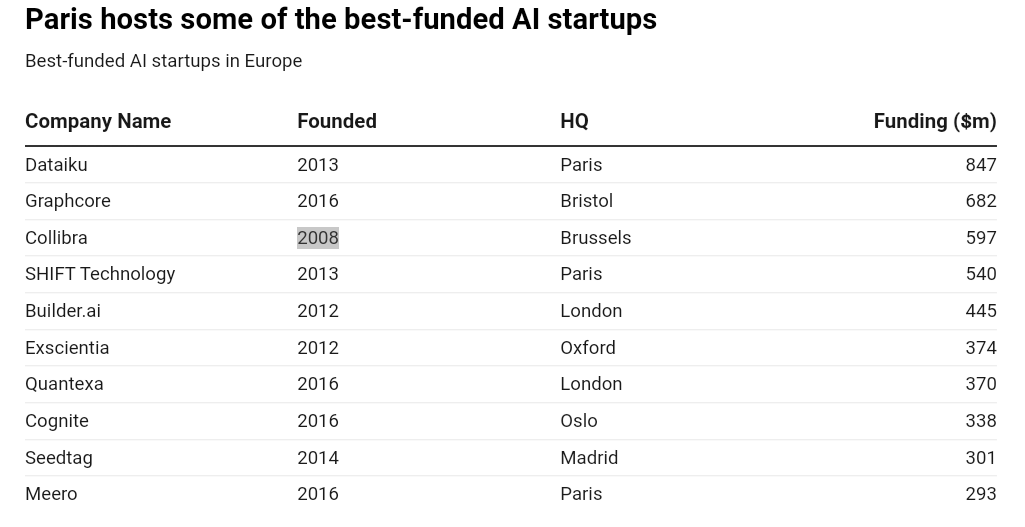
Europe wants to become AI tech hub
The Earlybird research analyzed private companies that received more than $500,000 in AI funding over the last five years. It looked at dimensions such as location of the company headquarters, investors, educational backgrounds of the founders, and more.
Technical University Munich leads Europe in the number of artificial intelligence founders, with 35 alumni who have gone on to start their own AI companies. Cambridge with 33, Oxford, 28, and Imperial College London with 20 follow closely behind.
However, this pales in comparison to the number of AI founders produced by universities in the United States. For example, the University of California, Berkeley produced 94 AI founders, Stanford University 67 and the Massachusetts Institute of Technology with 41.
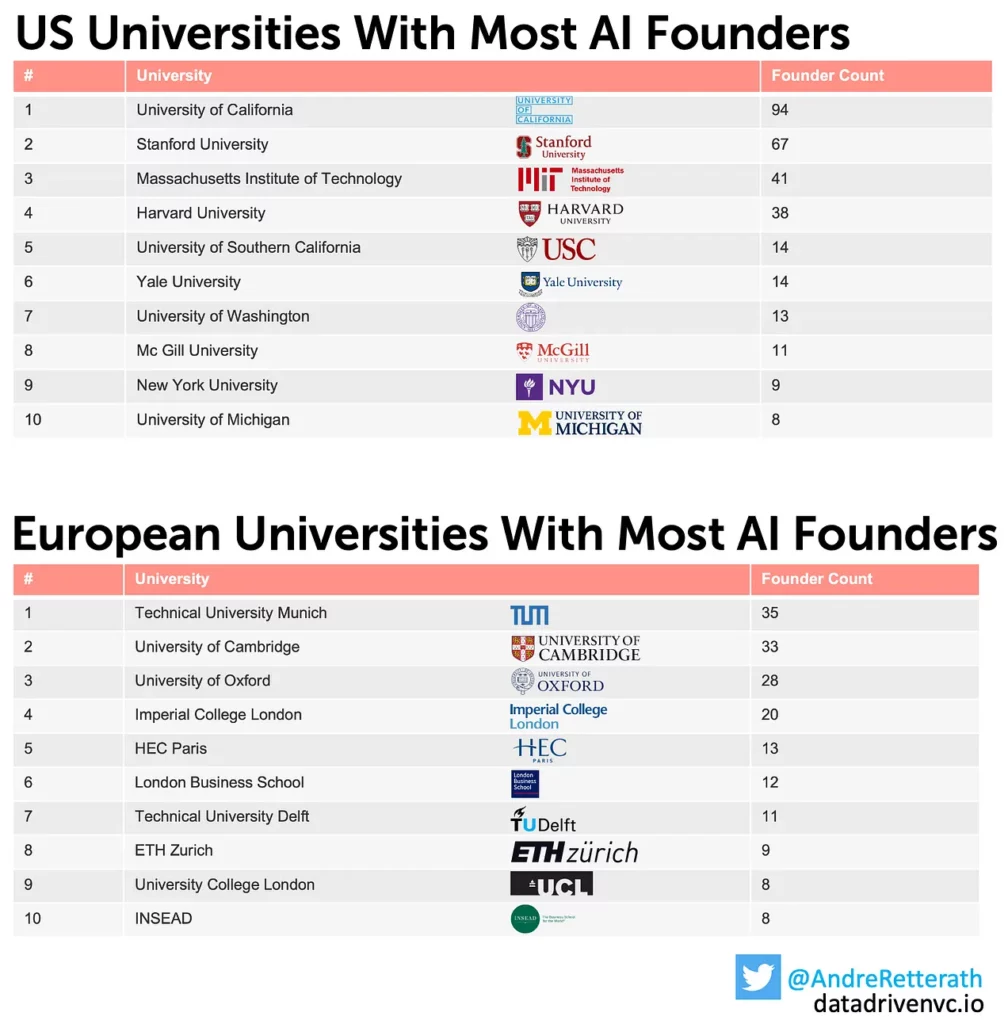
Andre Retterath, partner at Earlybird, said Europe produced AI excellence, but has trouble scaling start-ups.
“Europe does have very strong research. However, the collaboration between universities and companies is not as strong as in the US,” Retterath, who led the research, told Sifted.
He also spoke about the importance of Silicon Valley as the epicenter of artificial intelligence development in the U.S.
“Top researchers from Europe also want to go there as there is close collaboration between the universities, big tech and startups,” he said.
Multiple AI hubs are evolving throughout Europe and dozens of companies are showing potential of becoming top projects.
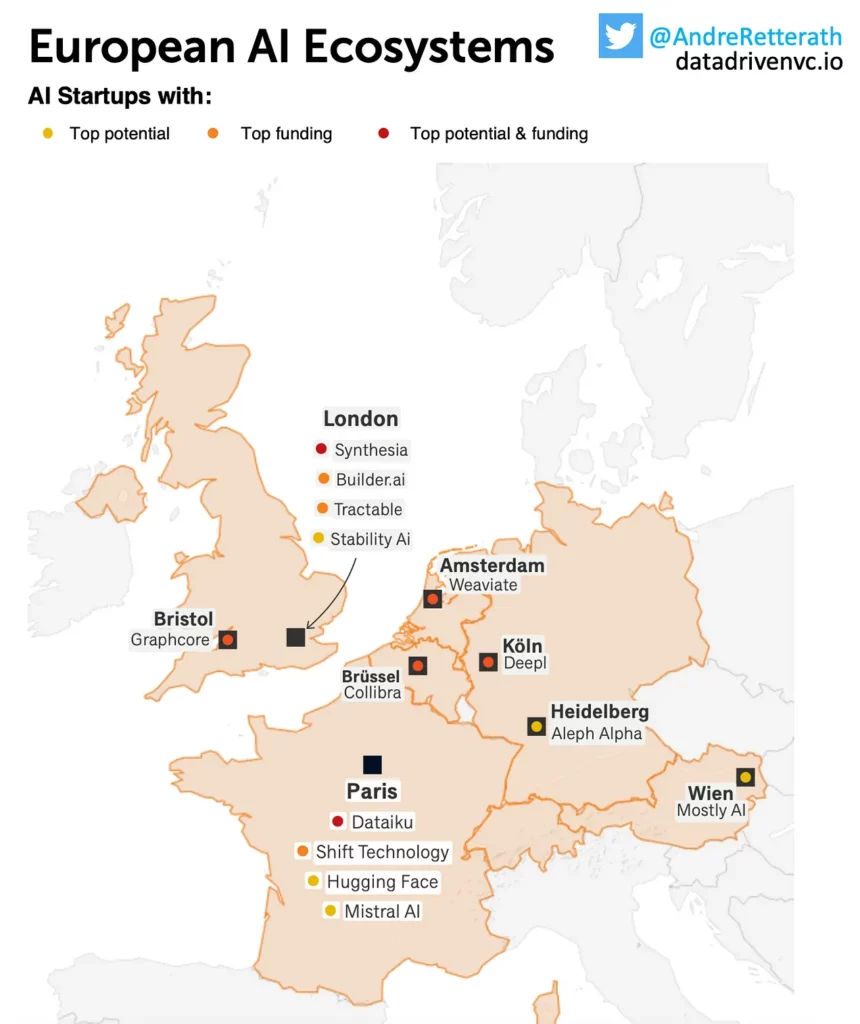
“Europe has great universities, research entities, lots of innovation, lots of talent and an untapped potential to create more startups! We want to back these startups,” added Earlybird’s Johannes Triebs.









 and then
and then